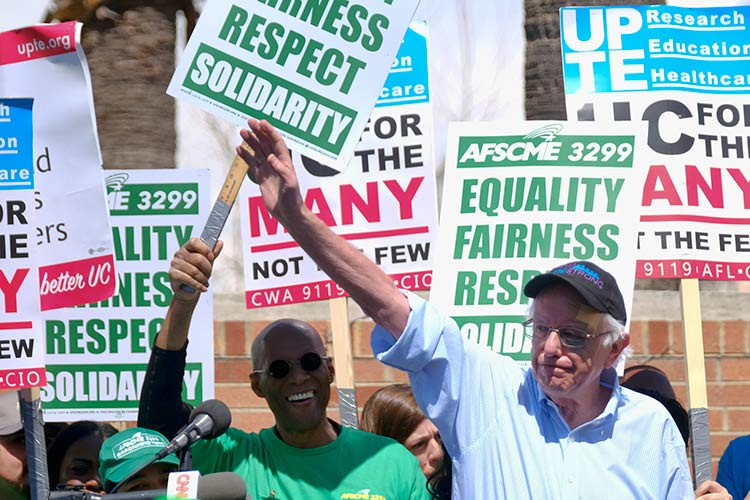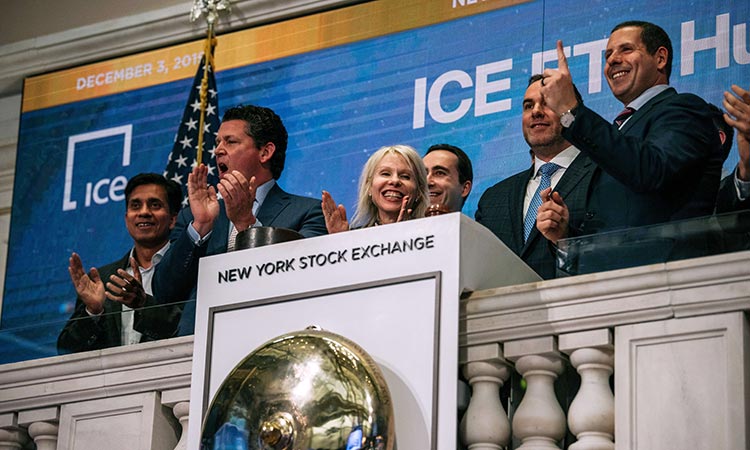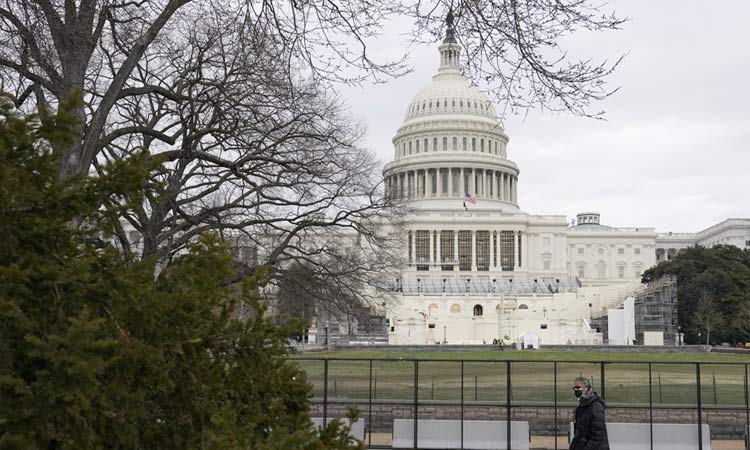Faulty tax structure is guilty, not the billionaires

Barnie Sanders at a political rally. File/ AFP
Karl W Smith, Tribune News Service
Bernie Sanders can’t decide what socialism is. At times he frames it as nothing more than New Deal-style capitalism, not so different from the Scandinavian economies of Norway, Sweden or Denmark. Other times he defines it in the language of class struggle, vowing to smash “the oligarchy” and “restore power to the many, not the few.”
In a speech last week at George Washington University, Sanders attempted to merge the two definitions: He aimed to finish the New Deal, he said, precisely because a failure to do so would threaten an oligarchic takeover of the US. He criticised the expansion of the power of the 1%, America’s richest self-made man and the wealthiest American dynasty. Only by defeating these moneyed interests, he said, can Americans gain access to the economic rights so vital to the survival of their political rights.
There’s only one problem: Billionaires and social democracy are both doing quite well, thank you, in Scandinavia.
First, there is the 1%. If anything, Sweden, Norway and, to a lesser extent Denmark are friendlier to the accumulation of great wealth than is the US. Indeed, the ranks of billionaires have grown more rapidly in Scandinavia in recent years than in the US. Denmark has just as many billionaires per capita as the US, and Sweden and Norway have far more.
Nor are Scandinavians opposed to the maintenance of wealthy dynasties. Neither Norway nor Sweden has an estate tax, and there is a move to abolish Denmark’s 15% rate. In the US the estate tax is 40%. Dividends, meanwhile — a common source of income for the dynastic rich — are given about as much if not more of a tax break, relative to labour, in Scandinavia.
What about moneyed corporate interests? Sanders points to the 2017 Tax Cut and Jobs Act, which included a large corporate tax cut, as a sign of oligarchical power. But the US corporate tax rate is still higher than it is in Scandinavia.
How, then, is it possible for the Scandinavians to afford such an expansive welfare state? Three words: Higher income taxes. The tax code in Scandinavian countries is far less progressive, and therefore more efficient at raising revenue, than in the US. In the US, the top federal tax rate on wages is 40.8%, and it takes effect once annual income reaches above $600,000. In Denmark, the top marginal bracket is 55.9%, and it starts once pay exceeds $82,000 a year.
Further, all three countries levy a substantial value-added tax, which is not on income but on consumption. By the standards of many American economists, the VAT counts as a regressive tax, because the wealthy consume a small fraction of their overall income.
In short, the Scandinavian countries levy large taxes on the middle class and even the poor to pay for services that largely go to the middle class and the poor. This was, in fact, also the thinking behind the New Deal. The taxes that fund Social Security are payroll taxes, the least progressive federal taxes. When Medicare was created in 1965, it too was paid for by a payroll tax.
New Deal capitalism wasn’t about class warfare. It was about social insurance. It’s the 99% chipping in to take care of each other, not take down the 1%. There is a deep intuitive logic to this: The idea is that recipients of government benefits — whether they be Scandinavians or American retirees on Social Security — not feel as if their benefits are something they’ve been given by (or taken from) the ignoble rich. They are something they’ve at least partially earned.
In truth, American retirees are getting a great deal as it stands. The health care they receive, for example, costs a lot more than what they paid into the system when they were working. An honest discussion about expanding entitlements would recognize that such a change would require higher taxes not just on the super-rich, but on almost all working Americans, of today and tomorrow. If Sanders wants to bring more Scandinavian-style social democracy to the US, he should be straightforward about that.







